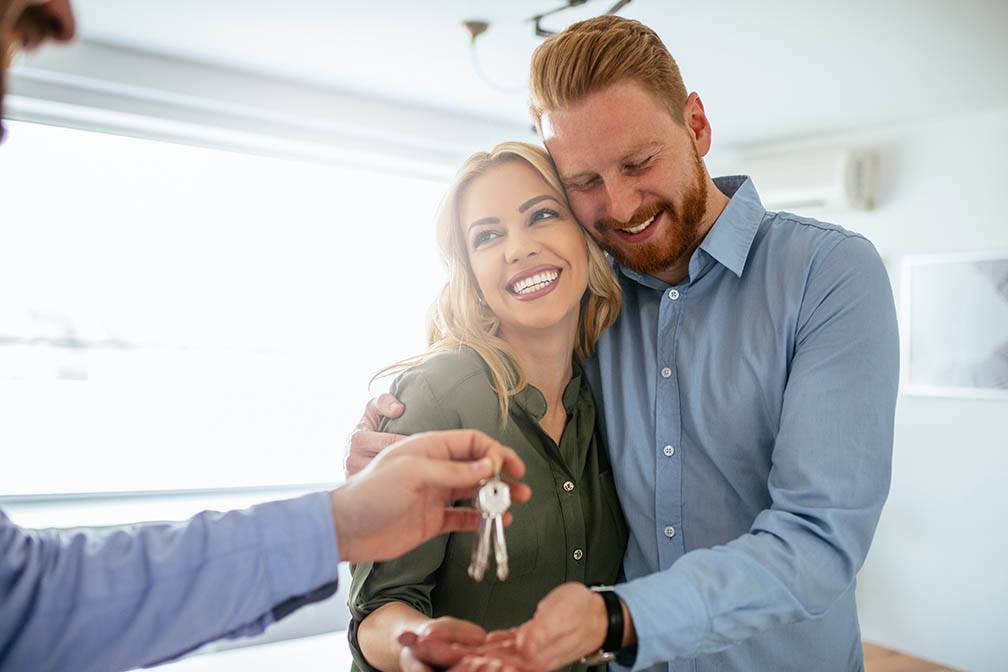5 Things That First-time Home Buyers Wish They Knew Before They Signed
 Without a doubt, it can be both overwhelming and exciting to find your dream home and be able to put the money down for it. However, there are a lot of things to know before signing on the dotted line so you can avoid buyer’s remorse. Instead of going it alone, here are a few tips to keep in mind before you decide to commit to your new home.
Without a doubt, it can be both overwhelming and exciting to find your dream home and be able to put the money down for it. However, there are a lot of things to know before signing on the dotted line so you can avoid buyer’s remorse. Instead of going it alone, here are a few tips to keep in mind before you decide to commit to your new home.
A Good Agent Is Important
Many homeowners want to find the right place on their own, but having an agent along to assist you in the process can go a long way towards finding your ideal home at the right price. Instead of risking it, choose an agent that comes highly recommended and has an abundance of experience in the business.
Is The Price Right?
It’s easy to be taken in by a beautiful home, but before putting money down you’ll want to calculate your debt-to-income (DTI) ratio to make sure it’s within reach. You may feel like you can make it work, but paying a too-high mortgage will become a drain over time and may ruin the happiness of your home investment.
What’s The Potential?
When it comes to first-time buying, many potential homeowners go into it with unrealistic expectations. However, demanding too much of your investment can mean you miss out on the gems that have a lot of hidden potential. Instead of saying ‘no’ right away, consider what you can improve for little cost.
Researching The Neighborhood
The focus for many homeowners is definitely the house, but ‘location, location, location’ is a cliche; for a reason. Instead of focusing only on your home, ensure you’ll be living in a neighborhood where you can feel safe and will have access to all the amenities you need.
Investing In An Inspector
A home inspection may feel like a formality, but it’s important to have the right inspector so they will notice maintenance items that can hugely impact your finances. While little items that need to be fixed-up are not a big deal, issues with the foundation or the roof can cause major grievances if they’re not detected.
There are a lot of things to keep in mind when it comes to buying a home, but by doing your research and being aware of your financial outlook, you’ll be well on your way to a good investment. If you’re currently in the market for a home, please contact your trusted mortgage professional for more information.

 Outside of the significant financial responsibility of delving into home ownership, there can also be a lot of other risks involved that you may not have thought about before investing in a home. You’ll need to protect your home against theft or burglary. And homeowner’s insurance to protect your home and belongings is almost a requirement. But there are other less common occurrences you may not have thought about. If you happen to be living in an area that’s at high risk of fire, here are some things to consider beforehand.
Outside of the significant financial responsibility of delving into home ownership, there can also be a lot of other risks involved that you may not have thought about before investing in a home. You’ll need to protect your home against theft or burglary. And homeowner’s insurance to protect your home and belongings is almost a requirement. But there are other less common occurrences you may not have thought about. If you happen to be living in an area that’s at high risk of fire, here are some things to consider beforehand. When investing in a home, one of the most important things is buying a place that you and your family can feel comfortable in. However, while a place you can envision yourself in is important, it’s not worth neglecting the neighborhood you’ll be moving into for the perfect home. If you’re wondering what you should be looking for in the neighborhood you choose, here are a few things to consider before making an offer on a home.
When investing in a home, one of the most important things is buying a place that you and your family can feel comfortable in. However, while a place you can envision yourself in is important, it’s not worth neglecting the neighborhood you’ll be moving into for the perfect home. If you’re wondering what you should be looking for in the neighborhood you choose, here are a few things to consider before making an offer on a home. It can be a stressful experience to put your home on the market and wait for offers in the hope that you’ve priced it right. However, for those who are considering selling to family members, the sale of a home can be fraught with just as much stress before and after sealing the deal. If you’re wondering if it’s a good idea to sell to a family member, here are some things to consider beforehand.
It can be a stressful experience to put your home on the market and wait for offers in the hope that you’ve priced it right. However, for those who are considering selling to family members, the sale of a home can be fraught with just as much stress before and after sealing the deal. If you’re wondering if it’s a good idea to sell to a family member, here are some things to consider beforehand. Most people peruse the real estate market for a while before they bite down and decide to invest in a home. However, whether you’re in a rush or you think you’ve found the ideal place, it’s possible you may be ready to put in an offer on the first visit. If you’re trying to determine how you can get the home you’re looking for the first time around, here are a few things to be aware of when going in.
Most people peruse the real estate market for a while before they bite down and decide to invest in a home. However, whether you’re in a rush or you think you’ve found the ideal place, it’s possible you may be ready to put in an offer on the first visit. If you’re trying to determine how you can get the home you’re looking for the first time around, here are a few things to be aware of when going in.